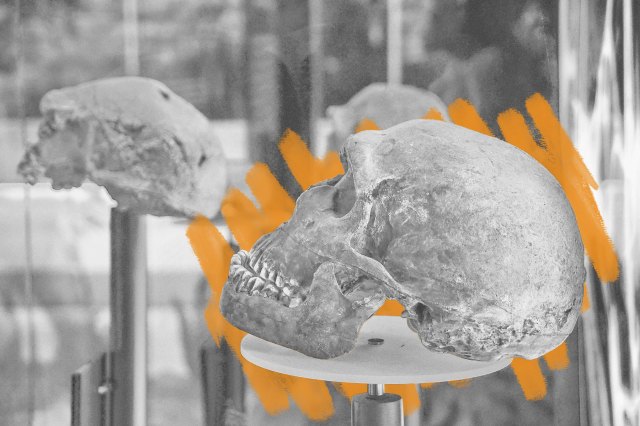 |
Homo sapiens has been on Earth for only 0.0067% of its existence. |
Science & Industry |
 |
| |
| There are a number of theories seeking to explain why we survived and our predecessors didn't, including superior brainpower and dumb luck, plus a newer theory suggesting that our interpersonal skills and dependence on one another helped us succeed where others failed. (Perhaps the secret really was the friends we made along the way.) We haven't been here the longest — that would be Homo erectus, whose 1.5 million years on the planet is a record among humans that we sapiens won't surpass for some 1.2 million years — but we have left the most sizable footprint. Whether that ends up being a good thing may be for the next species to decide. | |
 |  |
 | ||||||||||||||
By the Numbers | ||||||||||||||
| ||||||||||||||
| ||||||||||||||
 | ||||||||||||||
| ||||||||||||||
A day on Earth used to be much, much shorter. | ||||||||||||||
| When our humble planet first formed 4.6 billion years ago, a day was just six hours long. The amount of time it took the Earth to rotate on its axis increased to 21.9 hours by 620 million years ago, and today it's 24 hours. It hasn't stopped getting longer, either: A century from now, a day will be 1.7 milliseconds longer due to the moon's gravitational pull slowing Earth's rotation ever so slightly. As our only natural satellite drifts 1.5 inches away from us each year, a process known as lunar recession, the tides it creates in our oceans slow Earth's spin. | ||||||||||||||
 | |||
Recommended Reading | |||
 | |||
| | |||
 | |||
| | |||
| + Load more | |||
| |||||||||
| Contact us | |||||||||
| Privacy Policy | |||||||||
| Terms of Use | |||||||||
| Do Not Sell My Info | |||||||||
| 700 N Colorado Blvd, #513, Denver, CO 80206 | |||||||||
|





No comments:
Post a Comment